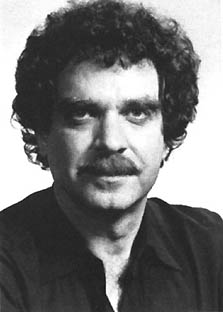

Mr. Youngblood, author of Expanded Cinema.
“Expanded cinema”, i.e. the expansion of the commonplace form of film on the open stage or within a space, through which the commercial-conventional sequence of filmmaking – shooting, editing (montage), and projection – is broken up, . . .the electronic, digital cinema, the simulation of space and time, the simulation of reality. . .an analysis carried out in order to discover and realize new forms of communication, the deconstruction of a dominant reality. . .The mission of the Futurists was fulfilled in the multimedia, intermedia activities of Expanded Cinema under the motto of the expanded concept of art."
Excerpts from a wonderful lecture by Valie Export at "The Essential Frame - Austrian Independent Film 1955 - 2003" program of screenings held in 2003.
"Expanded Cinema by Gene Youngblood (1970), the first book to consider video as an art form, was influential in establishing the field of media arts. In the book he argues that a new, expanded cinema is required for a new consciousness. He describes various types of filmmaking utilizing new technology, including film special effects, computer art, video art, multi-media environments and holography."
From the Article on Youngblood on Wikipedia (Dec 4th, 2008)
". . .the historical and theoretical premise of avant-garde artists being anti-narrative can be proved unfounded by simply reviewing the practice throughout history. This is not widely available, so similar to a review of the women’s avant-garde in relation to narrative, there is a need to determine a history for experimental interactive expanded cinema that is not guided by anti-illusion, material concerns, or single screen as categories to define it. After all categorization and definition are forms of censorship that have often found their way into institutional funding and exhibition curatorship. There is no doubt that ideologies take their toll on the continuation of certain artists practice. We need to understand how this has happened in the past to optimistically look forward to a climate for radical experimentation with moving-image in the future."
Excerpt from "Expanded Cinema: Some Reasons for a Review of the Avant-Garde Debates around Narrativity" by Jacki Hatfield author of "Experimental Film and Video: an anthology" and a founder of Rewind.
No comments:
Post a Comment